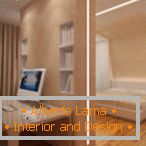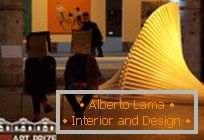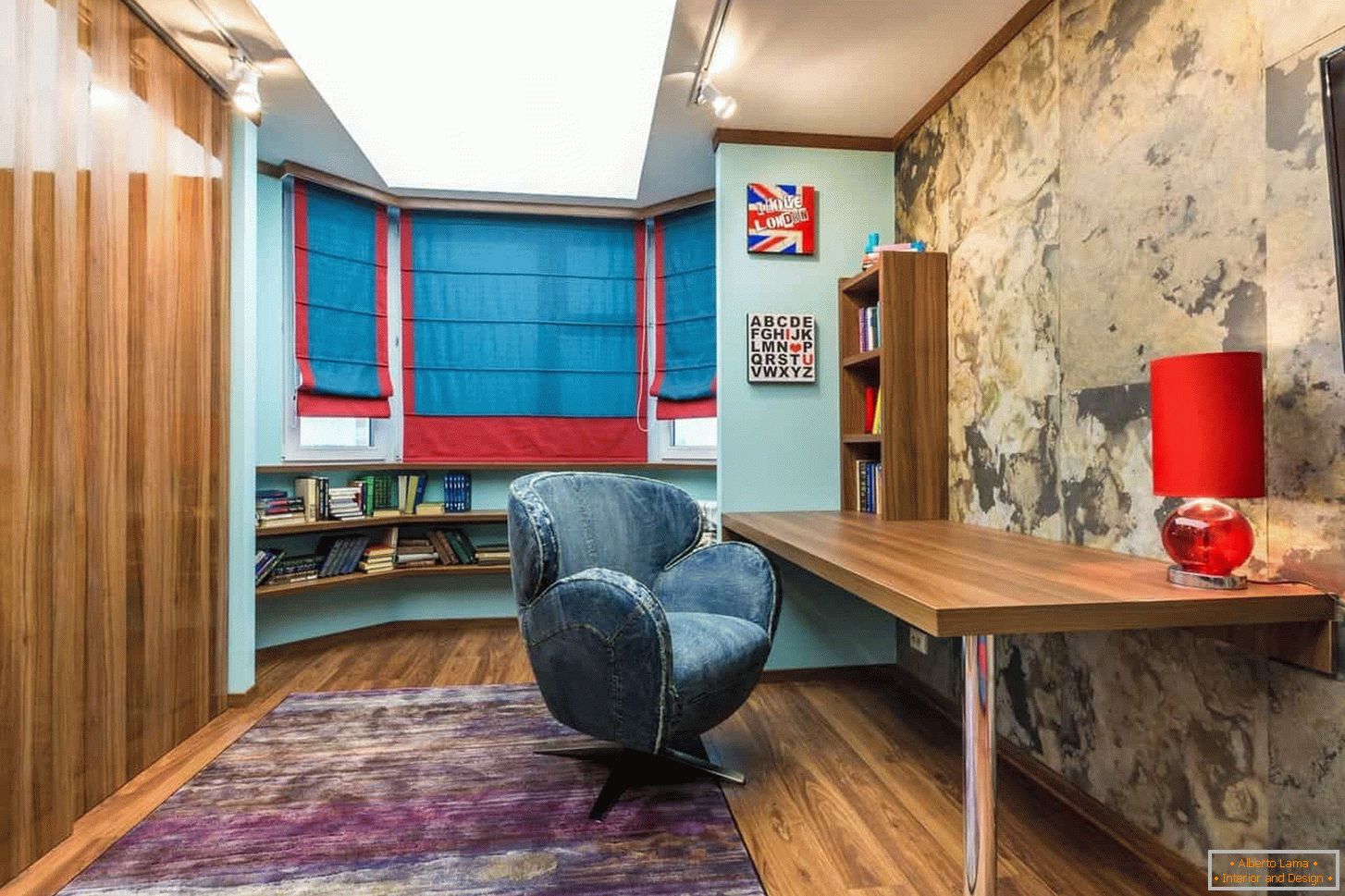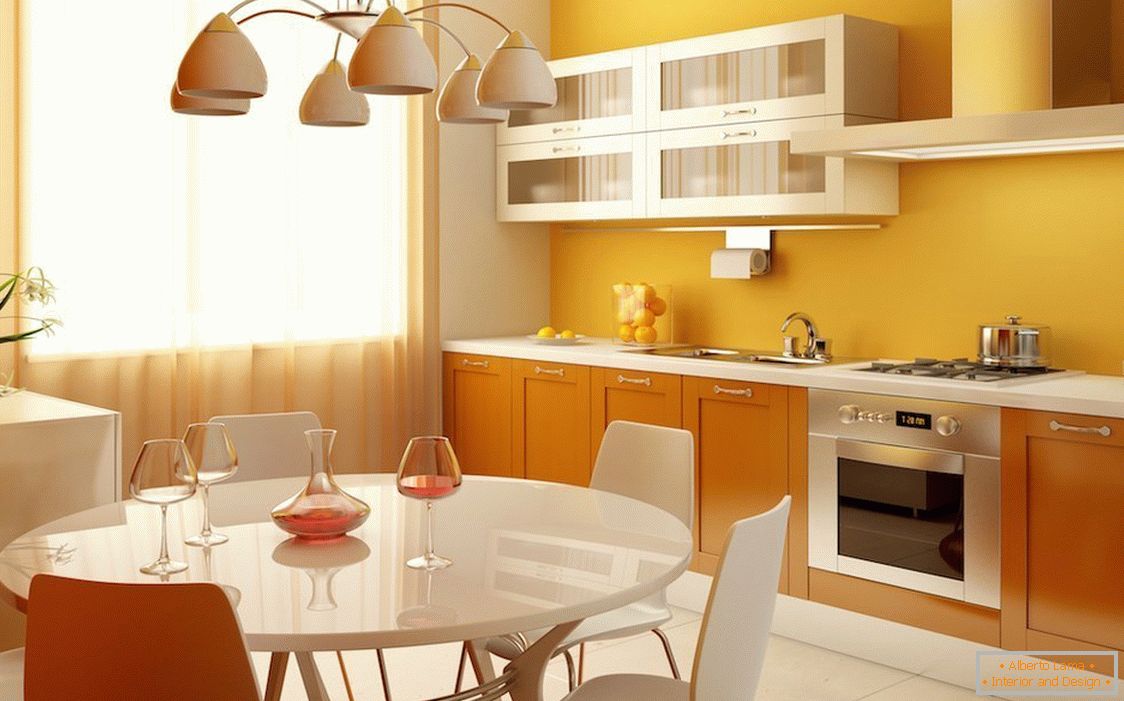
The lion's share of free time in the kitchen holds, of course, the landlady. When designing the interior of the premises, first of all, her wishes are taken into account. "Culinary patrimony" should also satisfy the aesthetic tastes of other household members (especially if the option is combined with a canteen) and obey a number of general rules that are conditioned by the special microclimate of the room. Many kitchen design projects are trusted by professionals, thereby removing most of the worries. Implementing other people's ideas into reality is much easier than developing your own from scratch. The ready plan will be presented to you "on a silver platter", if possible, taste preferences and desires will be taken into account. However, in recent years, the practice of creating a design project is becoming more popular, when an average person can try on the role of a venerable designer. Such a decision is due primarily to saving money that would have gone to pay for the services of a professional. However, the result will not only be authorial, exclusive, but also meeting all the requirements of the owners themselves for the design of their apartment. Who better than the owners themselves, will be able to translate their dreams into reality? Let's try to figure out how to correctly make a competent project and what common framework it should be limited.
In the design of the kitchen-living room, consider the features of both functional areas and try to adhere to the principle of their "equality". Both rooms play important roles and none of them should prevail, thereby "infringing" on the other.
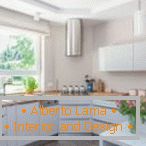
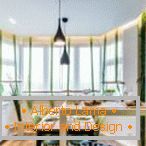
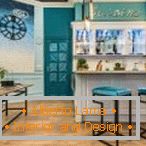
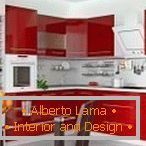
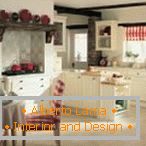
Determine with style
In the variety of styles it's easy to get lost, because there are hundreds of them. Such a rich "assortment" is due to the presence of a large number of "offshoots" in the same direction. They obey the general laws and adhere to unified rules, but they have specific features that allow to distinguish these "child" styles in subgroups. Let's note the five directions, which at the present time enjoy unprecedented popularity:
- Classical. "Long-Liver" among the styles. Classics are suitable for people with impeccable aesthetic taste, who like to surround themselves with luxury and feel in a similar situation "at home". The style is characterized by the use of pastel shades and tones from a rich brown scale. In textile use natural heavy fabrics, and in furnish - a tree and glass. He likes the classic stucco molding, crystal, ornaments, complex patterns and flowing lines. In such interiors, not only the decoration, but also the decoration itself becomes an art.
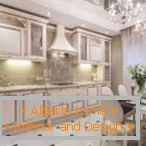
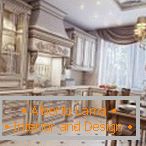
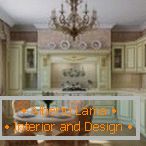
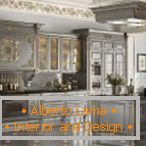
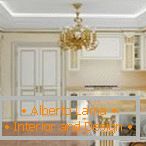
- Loft. The direction is relevant for the kitchen-studio, since the industrial style was born in free spaces, which were previously used not for living. The loft is characterized by combinations of rough finish and elegant details, an abundance of artificial lighting, open communication systems. From materials prevails brick, stone, wood, plastic.
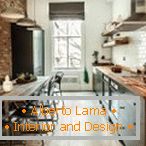
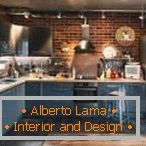
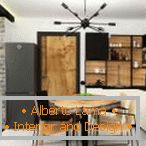
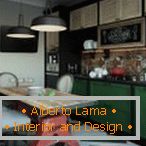
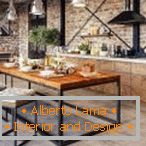
- Provence. Noble country style with a touch of refined French color. Aged furniture (antiques), light colors, lots of white, floral patterns, houseplants, wood in decoration - these are the main features of the style.
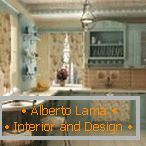
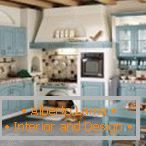
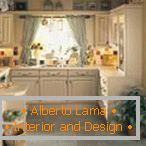
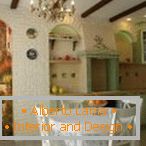
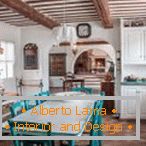
- Minimalism. The direction is focused on people who do not tolerate excess in their home. As a rule, white predominates in the interior, only the necessary minimum is used in furniture, a series of paintings on the accent wall is allowed from the decor. Revive the style of unusual shapes and contrasts of the textures of the surfaces of decoration and furnishings.
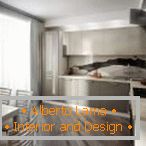
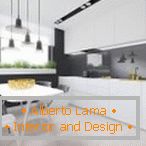
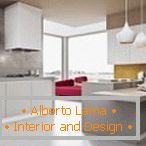
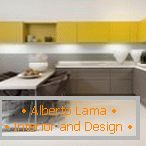
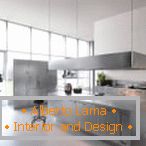
- High tech. High-tech style, stepping in step with the times. The abundance of household appliances, chrome surfaces, plastic and glass, a game of contrasts, the dominance of gray, black and white in the color scheme is such a "minimum" program for "combed" constructivism.
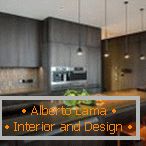
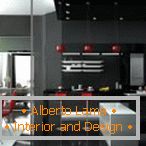
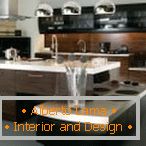
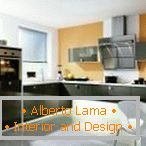
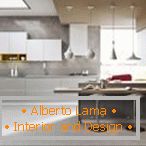
In addition to the above directions, art deco, country, cheby chic, art nouveau, retro, futurism, neoclassic, fusion, abstract art, Scandinavian and eco-style are relevant.
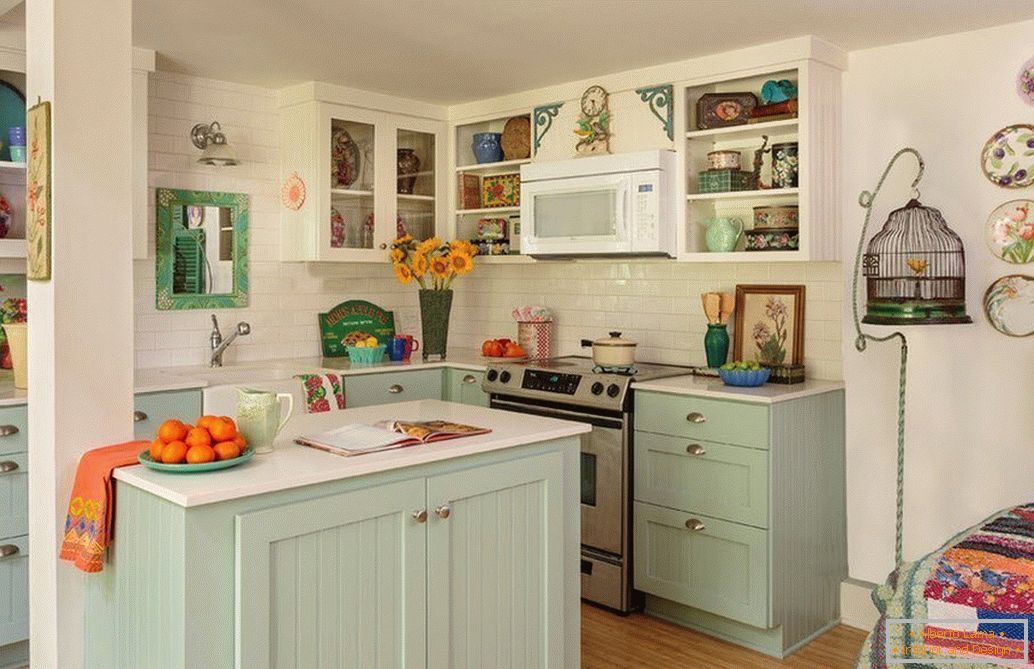
Carrying out measurements
Find out the exact size of the kitchen is necessary to correctly calculate the amount of finishing materials and not to be mistaken with the dimensions of the furniture. The room can have a large number of angles, sloping ceilings and a complex communication system that can not be moved to another location. Acquaintance with these nuances allows you to correctly design the design of the room. So, you need to make the following measurements:
- Height width length. These are the main figures, which will be based on the development of the whole project. If the ceiling is inclined, then it is necessary to measure the angle of inclination and the difference in the heights of the opposite walls.
- Communication systems. Ventilation and exhaust, which do not plan to move, must be measured and labeled on the kitchen plan.
- Appliances. It's about conventional units and embedded structures. If the technology is already purchased or you plan to leave part of the old one, its location should be roughly outlined on the plan along with height, width and length.
- Parameters of door and window apertures without walls coming out on the walls (in case of their replacement). If the doors are of the swing type, then take into account the side in which they open and mark the "stock" for it.
Perhaps the most difficult is the corner kitchen. In addition to standard measurements, it is necessary to check the perpendicularity of its walls. Also do not forget about sockets and switches. They should not be located close to windows, hob, sink. This takes into account the minimum permissible distance from the floor, compliance with which is necessary for safety. Hinged lockers must be placed on the bearing walls, so take a place for them in advance.
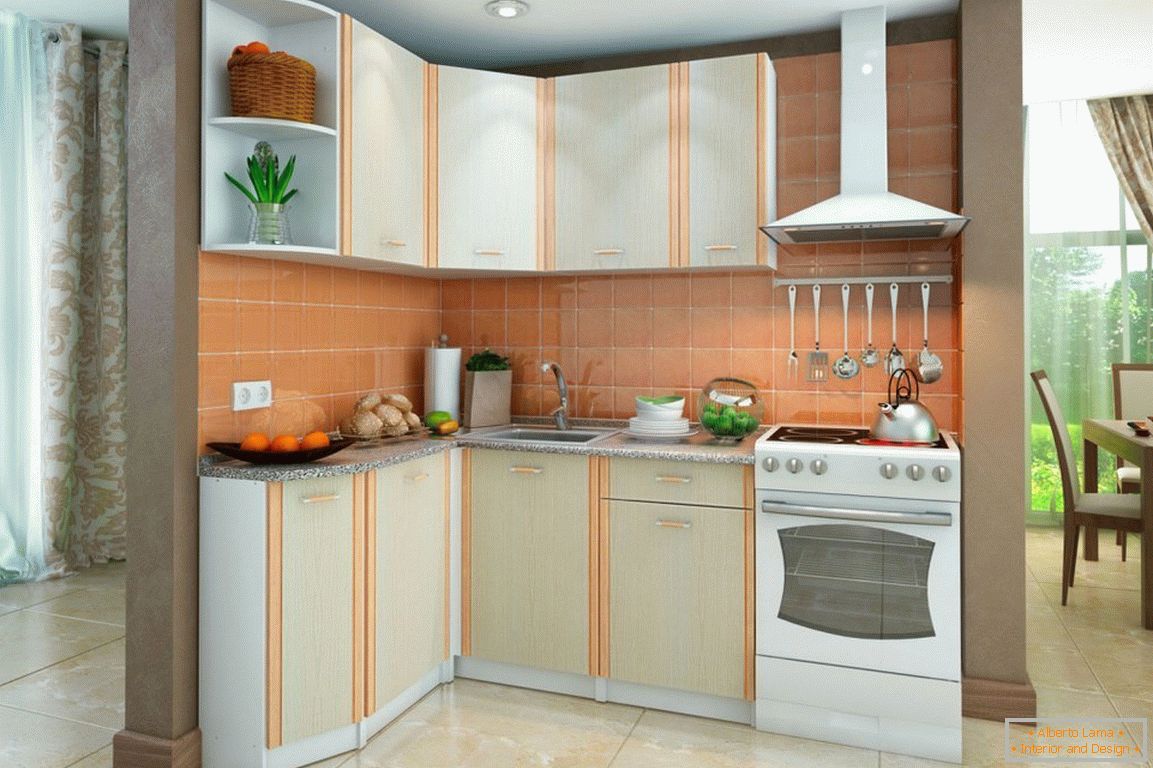
Rules for the placement of furniture and equipment
When arranging furniture first of all repel the features of the shape of the room and its dimensions. The main working area is the kitchen "triangle": a sink, a refrigerator, a hob. They should be located most conveniently, so that the hostess, without unnecessary movements, freely "flutter" from the site to the site. The second nuance is the dining area in the kitchen-dining rooms. These two areas are classified as basic, their location is a priority. Variants of accommodation of kitchen furniture taking into account the "working triangle" are as follows:
- Linear. Suitable for long, narrow rooms (usually less than 8 sq.m). All furniture is located on one wall, leaving the opposite for a free trip. The rule of "triangle" in such conditions is impossible to observe.
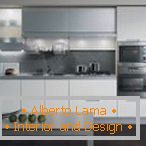
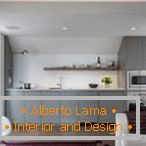
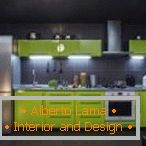
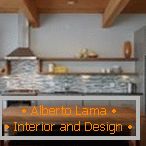
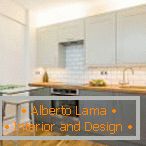
- Parallel. It is used in narrow kitchens, but with the possibility of comfortable placement of furniture in two rows near opposite walls. In this case, the hob and sink are installed on one side, and the fridge is installed on the other. As a result, you get the right "triangle".
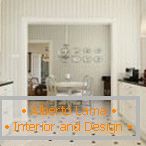
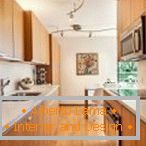
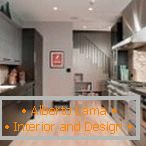
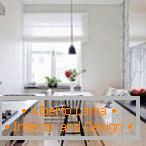
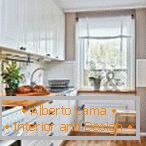
- U-shaped. A good option for kitchens of medium size (from 9 to 15 square meters). Furniture is set along three walls, leaving a fourth free. Functional units of the "triangle" are located in different points of the kitchen.
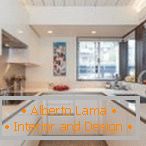
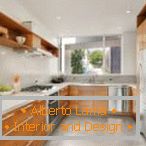
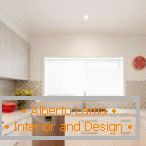
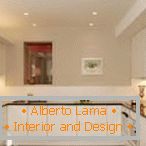
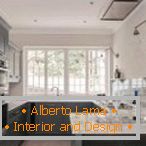
- L-shaped. Optimal option for spacious (up to 15 sq. M) premises, rectangular shape. As a rule, two functional zones from the "triangle" are located at one wall, and the third - at the other. In the free corner put a dining table and chairs or a sofa.
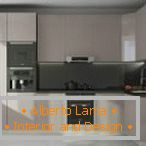
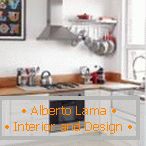
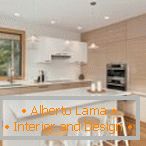
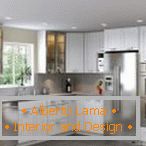
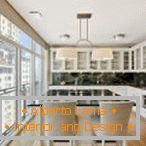
- Island. Actually, the solution for very large kitchens (over 15 sq. M.) Two sites are located on one wall, and a third (usually a plate) is carried out on a kind of "island" - a bar counter, combined with the cooking surface.
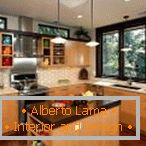
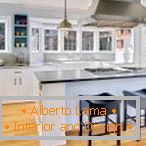
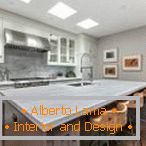
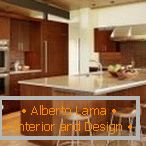
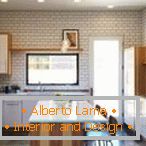
All types of layouts are based on the square of the room. It is not recommended to translate your ideas into conditions that are not suitable for them initially.
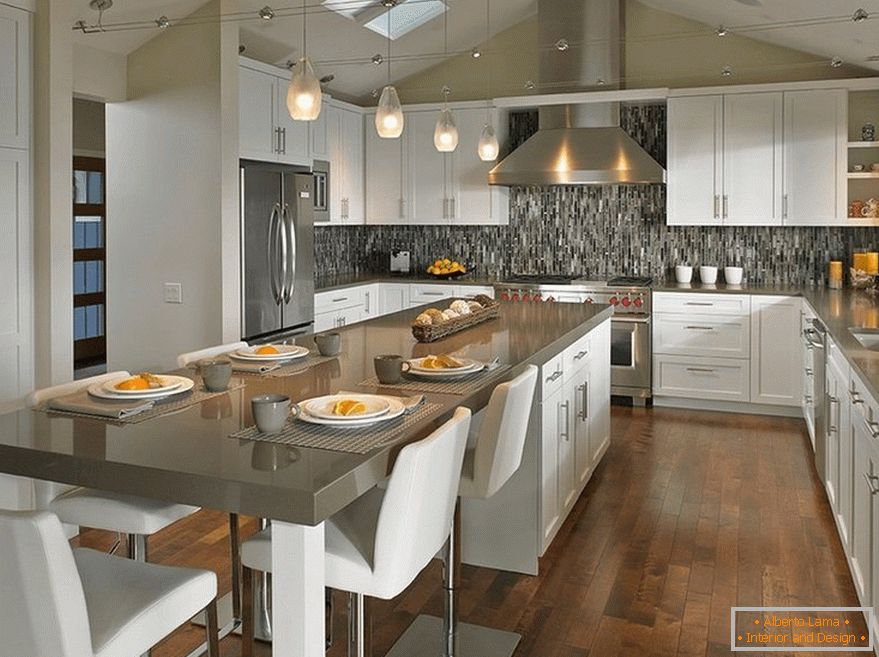
Design and selection of the type of kitchen unit
Kitchen set is a scale construction consisting of many separate elements. It includes:
- The objects are outdoor. To this list carry curbstones, lockers, plates. Outdoor furniture is "skeleton", the basis is a headset;
- Suspended structures. Places for storage of the open and closed type, which are mounted in the walls;
- Movable and detached furniture. It includes any mobile elements: tables, chairs, partitions. Mobile structures are necessary for small kitchenettes. Stand-alone objects usually do not move, but if necessary, problems should not arise with a change of place;
- Pencil cases. Constructions in which the width is much less than the height. Usually it is cabinets and other cabinet furniture for storage of food and kitchen utensils.
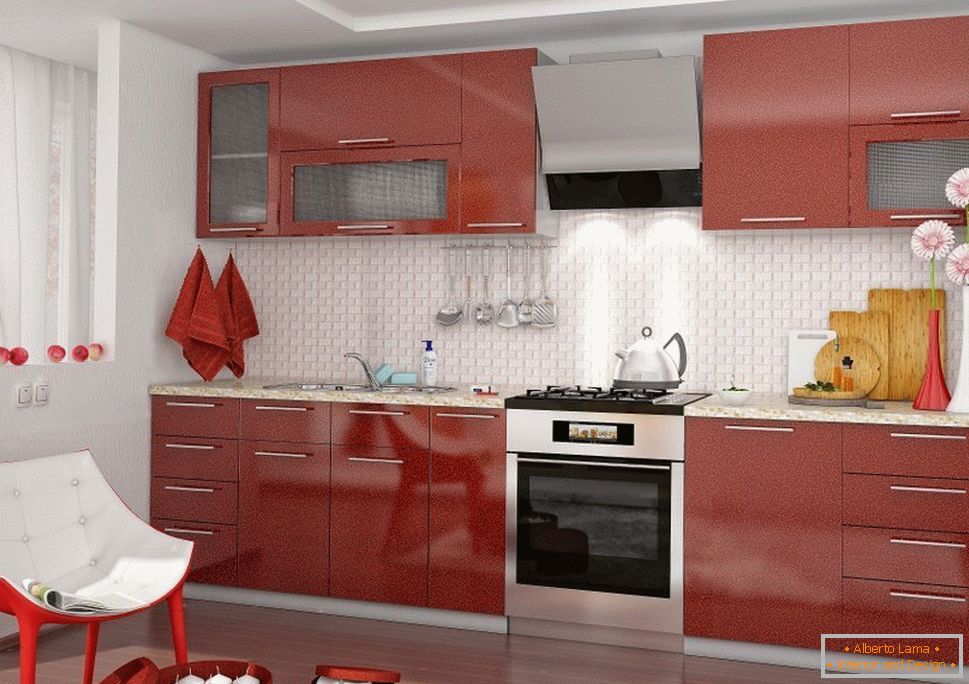
Headsets are classified according to the material of execution, color, shape, stylistic features. Complete sets can be L-shaped or angular (sails), U-shaped, linear and parallel. From the titles it becomes clear what layout each type of headset has.
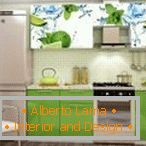
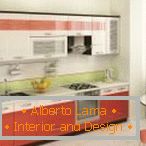
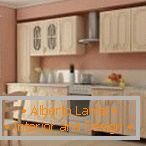
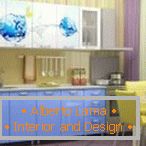
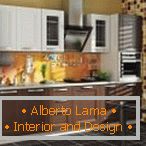
Choice of colors
Restrictions for the color scheme in the kitchen are only conditional. Do not recommend the use of an abundance of cold and dark shades:
- Blue;
- Blue;
- Green;
- Black;
- Brown.
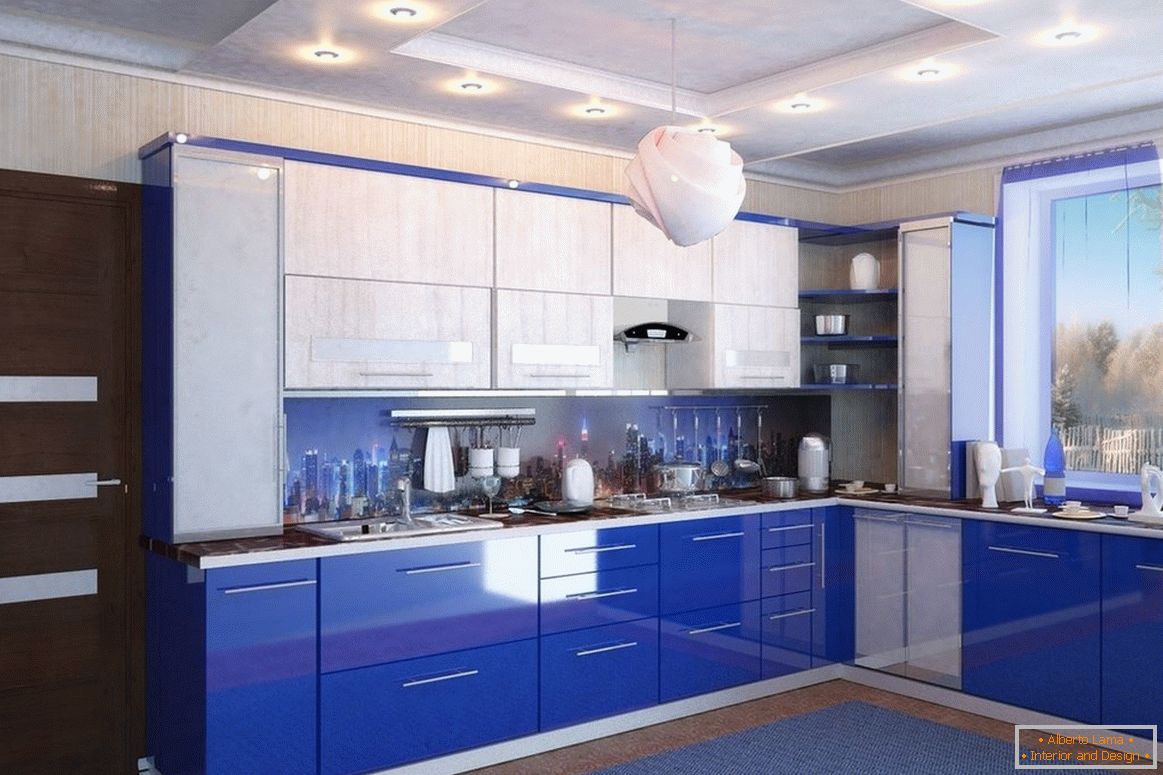
These colors suppress the appetite and can create an unfavorable atmosphere in the kitchen. If the color composition is correctly played, then the above shades can be used, but with great care and observance of exact "dosages". Actual for the premises are:
- Yellow;
- Orange;
- Pastel shades;
- White;
- Gray with a contrasting tone;
- Red with moderate application.
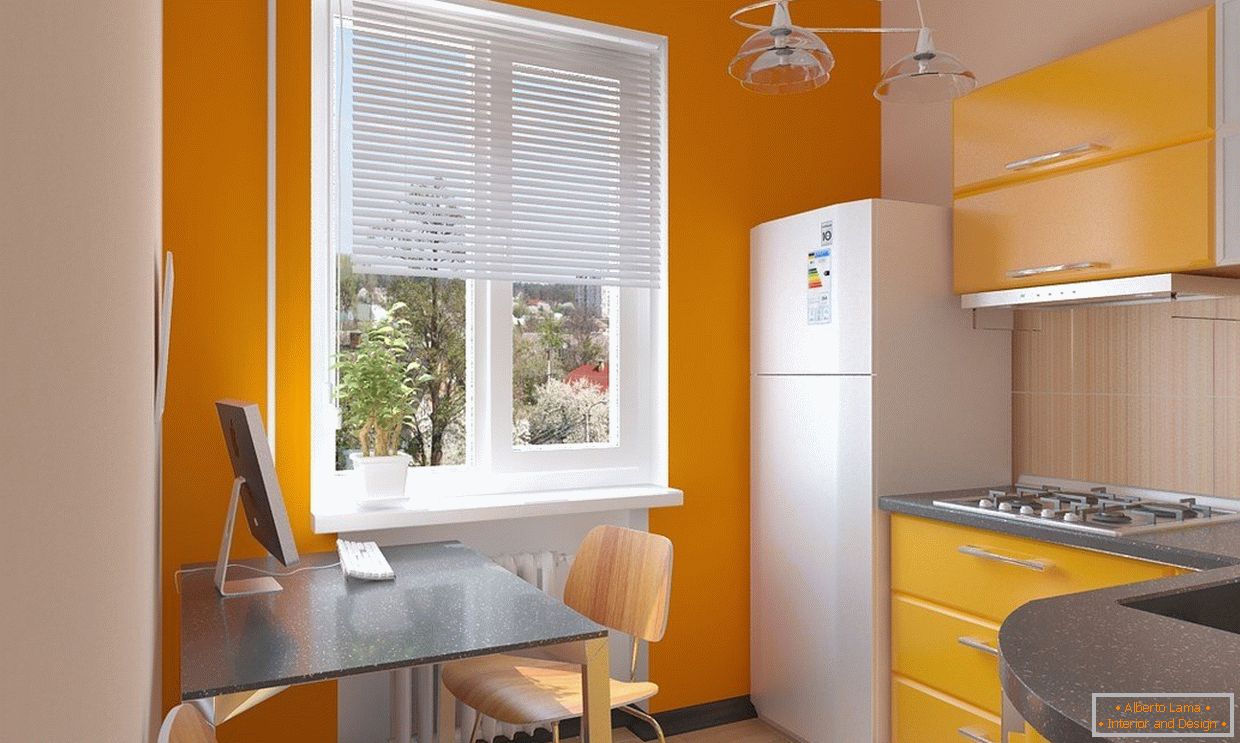
Contrasting kitchens, as a rule, look stylish and modern, but it is worth considering that this situation can quickly bother the hostess and the household. Pastel colors and neutral shades do not so quickly become boring. This is their main advantage.
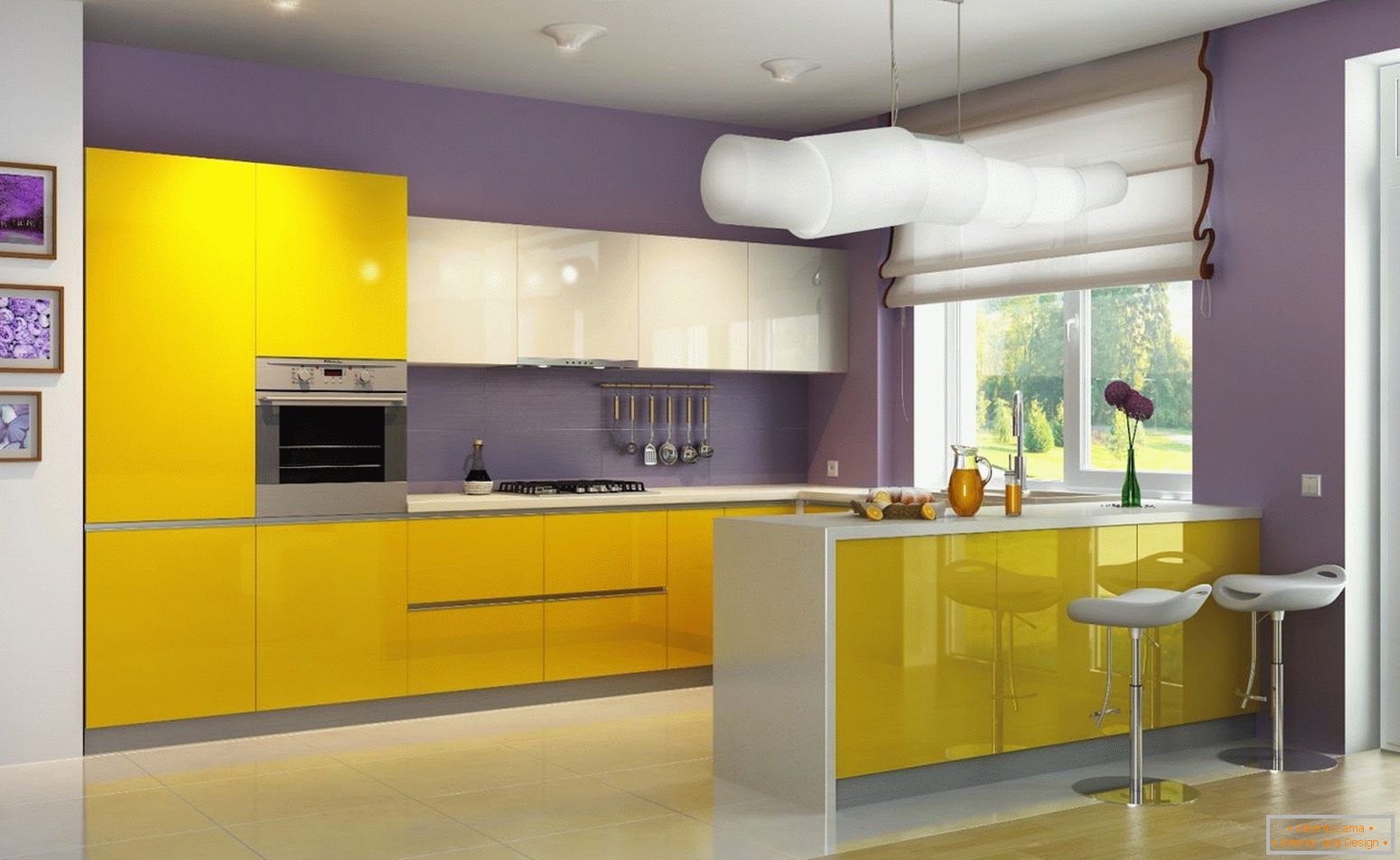
Selection of lighting devices
Lighting is studied in three directions at the same time:
- Ceiling (central). In small kitchens one, and in large two chandeliers, located above the zones of the room;
- Working surface (local). Here we are talking about lighting over a stove, a sink and a table, behind which one is being prepared;
- On the perimeter of the room (additional interior). Used exclusively for "beauty", to emphasize the merits of design. Dot lamps are usually used.
All lighting fixtures in the kitchen must be immune to hanging humidity and temperature changes. Acquire special sealed bulbs and isolate the wiring in a qualitative way during repair work to avoid short circuits.
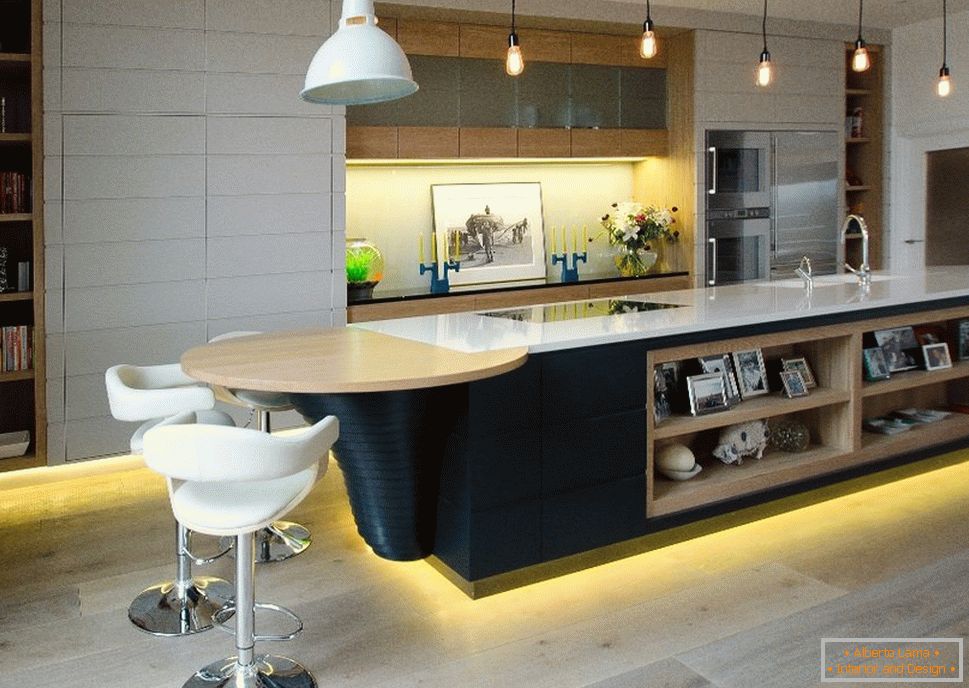
Selection of building materials
To finish the kitchen will require strong materials that are not afraid of water, detergents and sudden changes in temperature conditions. For wall finishing use:
- Tile. Ceramic tiles are distinguished by their strength and lack of sensitivity to household chemicals and the aggressive microclimate of the kitchen;
- Wallpaper with a special coating (washable). Less durable material, but will be pleased with a wide variety of textures and patterns on the surface;
- Decorative plaster or paint. Budget option, which in a couple of years will have to be replaced by a fresh layer;
- PVC panels. Thanks to the special production technology, modern plastic perfectly copes with the peculiarities of the kitchen atmosphere. Panel walls are afraid only of mechanical damage, but with the formation of breaks and cracks one module is changed to another without parsing the rest of the structure.
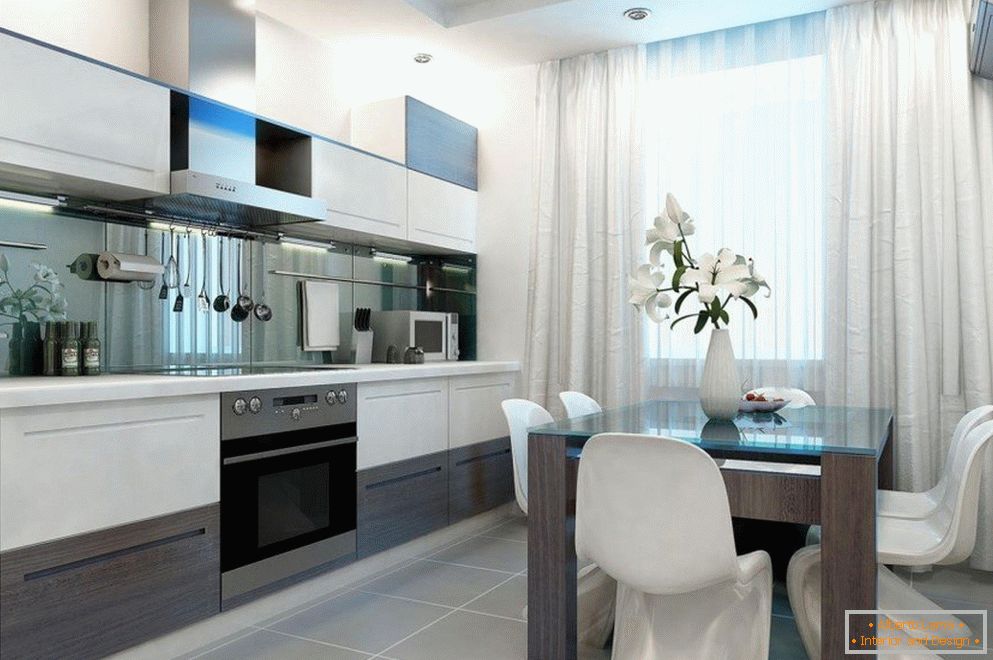
For a floor covering use a ceramic tile, linoleum, a stopper. The latter does not absorb moisture, but quickly gets dirty. Do not recommend covering the surface with a laminate or a parquet board. The first when the moisture gets swelled, and the second begins to rot. The floor is a heavy-duty, aesthetically beautiful and expensive material. It is used for decoration of "top class" kitchens in elite apartments. For a ceiling apply plaster (different levels), PVC, a paint, plaster.
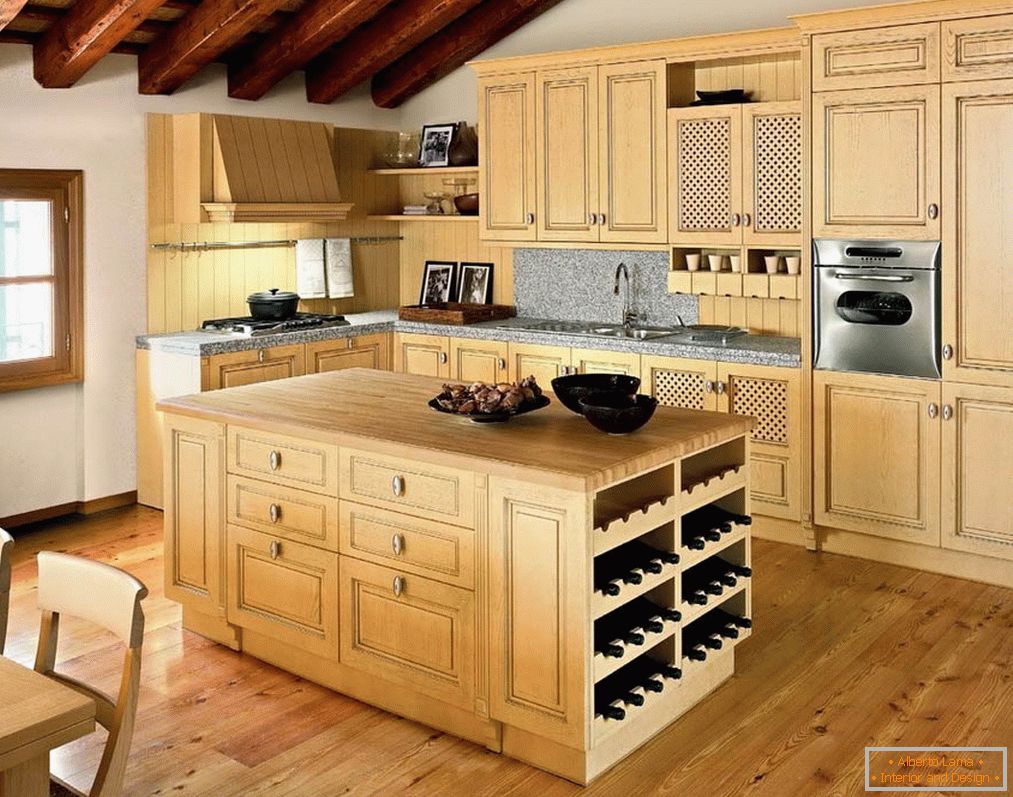
Especially popular are stretch and suspension structures. It is permissible to use them when the centimeters "eaten out" from above do not affect the perception of the room.
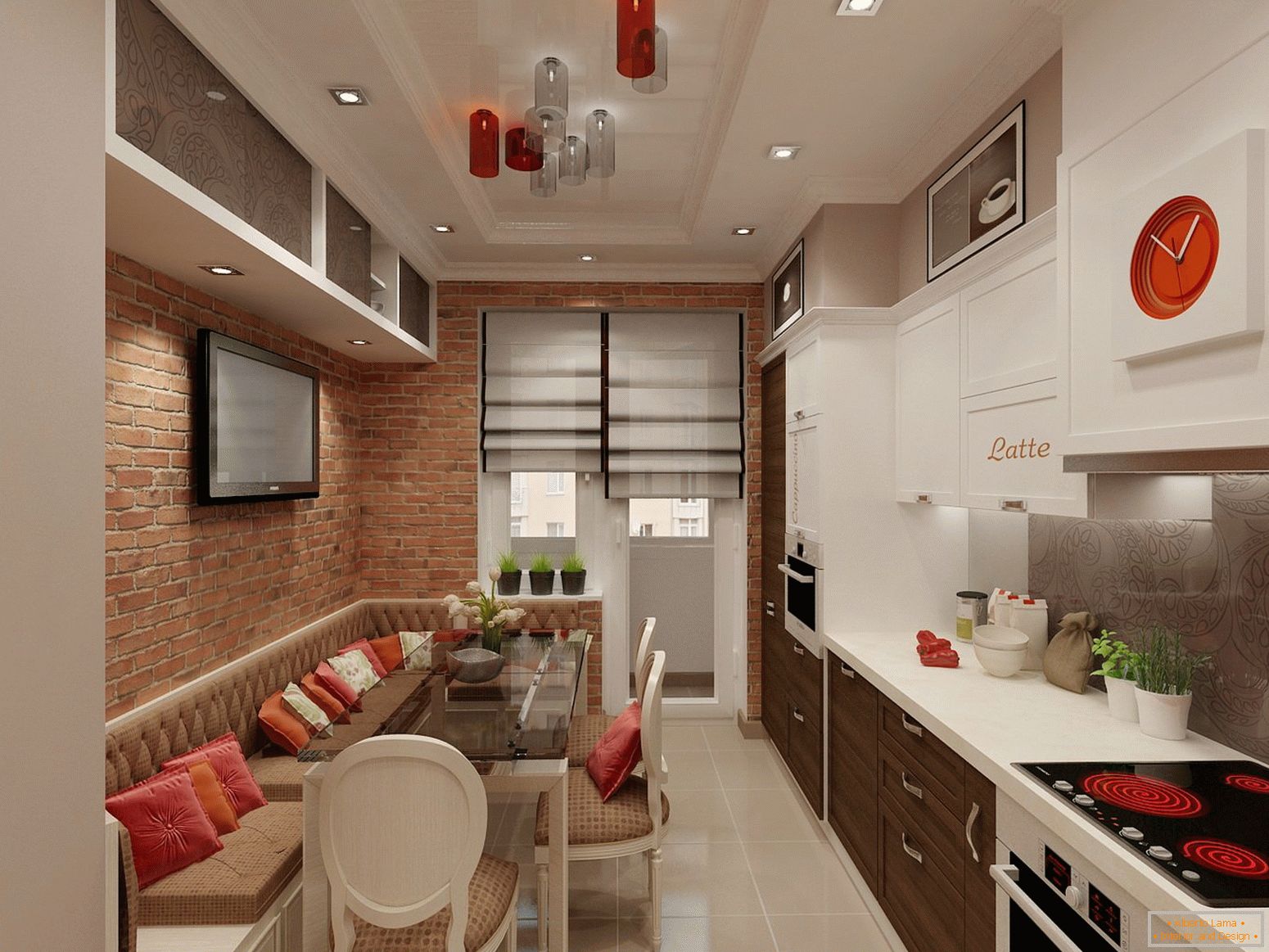
Design project with redevelopment
The project with re-planning in fact is not much different from the usual "sketch." The only thing that needs to be considered is the dismantling of walls or their separate parts. On the plan, these places can be beautifully marked as free, but in fact their absence can lead to catastrophic consequences. Before you can take anything yourself, you need to prepare a project for future work. It is first given to the architects who make adjustments and coordinate the finished plan. Then you have to bypass a number of instances (fire, sanitation and management company). A package of documents will also be required for presentation to various bodies. All this re-planning "whirlwind" can drag on for a long time. Have time and patience. Usually in the combined projects include kitchen-living rooms and dining rooms. In the interior it is necessary to take into account not only the features of the new space, but also the zoning of the room, without which the picture will not look complete.
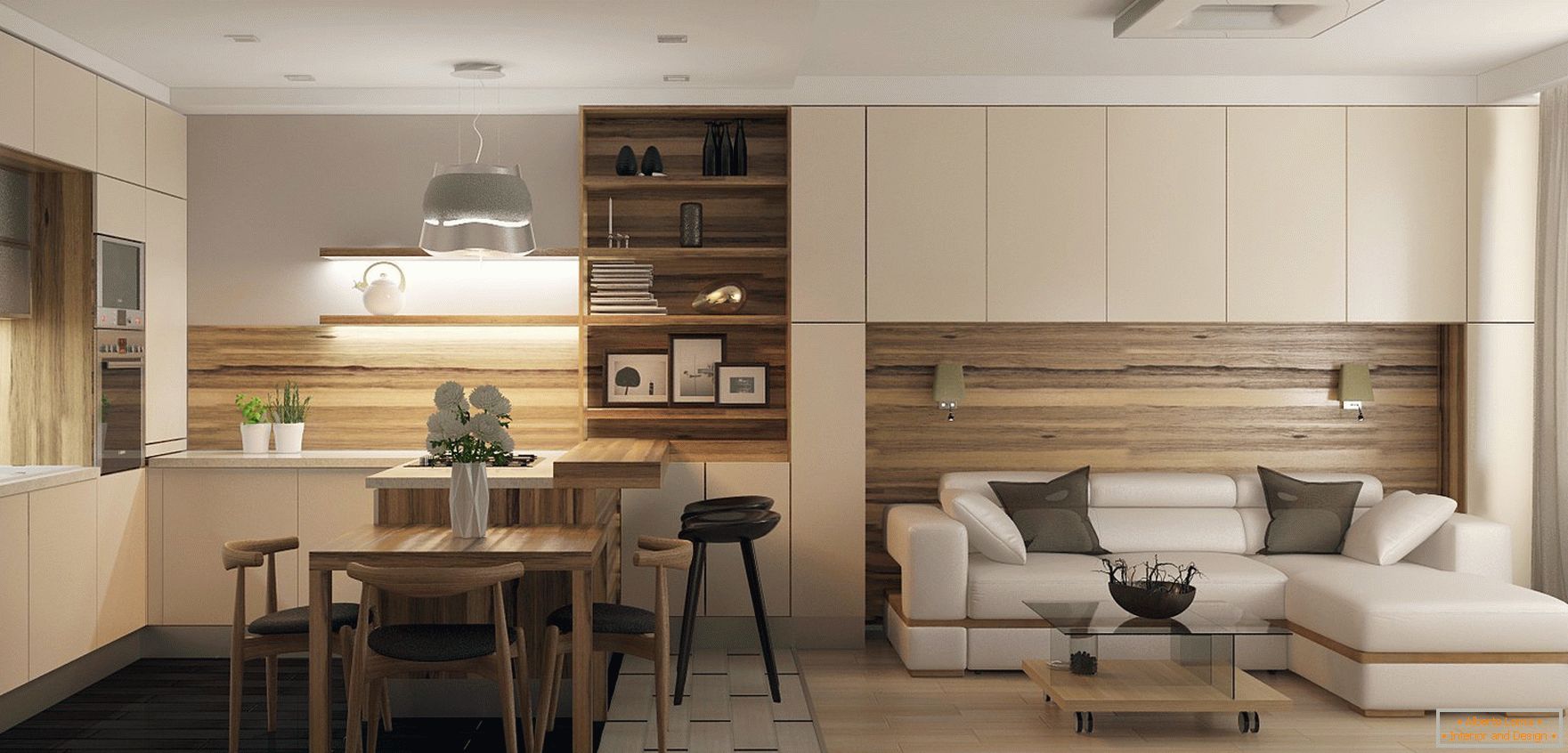
Free consultations on re-planning can be provided by specialists of design offices on-line. They are also contacted for professional help in drafting the project.
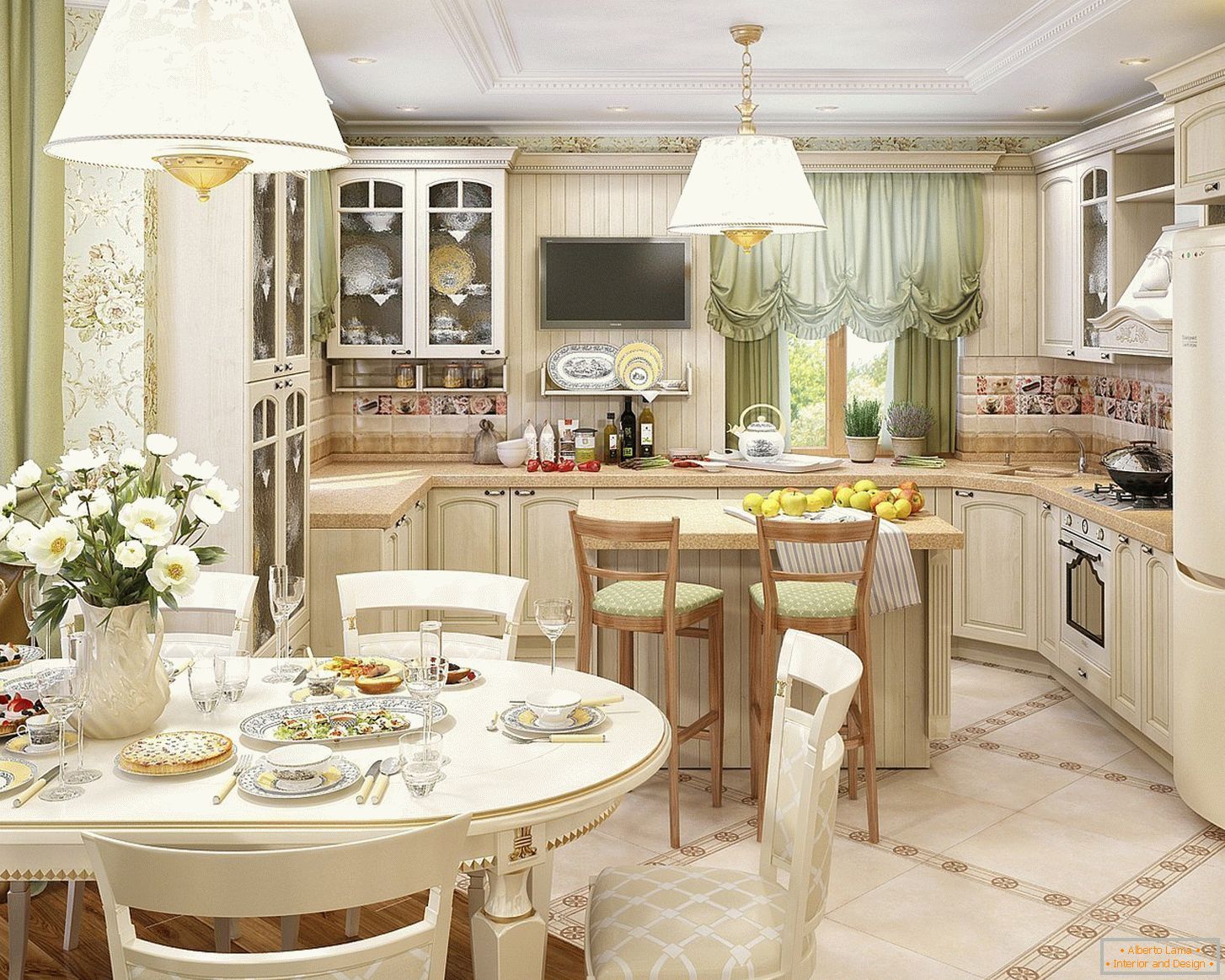
Drawing a drawing
Begin drawing with a sketch. Kitchen-squares are quite rare, so most likely you will have to excel with rooms of complex outlines and turn their shortcomings into virtues. Now move the layout to a sheet of paper, point out the locations of the windows and doors. Typical kitchens in Khrushchev, as a rule, have one opening for natural light, which can go out onto the balcony. If the premises are small, then perhaps it is worth considering the demolition of the partition and the union of the two spaces. In two-room apartments and studios, this deficiency is solved by using a combination with the neighboring room (zone). For owners of country houses, the task is much simplified, since in this case the kitchens are usually spacious, and can accommodate not only the necessary "stuffing", but also a dining area designed for large companies. Then on the drawing room are placed "imaginary" furniture. Begin with the headset, then the dining area for the kitchen-dining room, note the location of accent zones and decor. The decoration of the room will be "polished" in the process. At this stage, only a conditional picture is sufficient. If the finishing of rooms is difficult with the use of wireframes, these nuances are also displayed in the drawing.
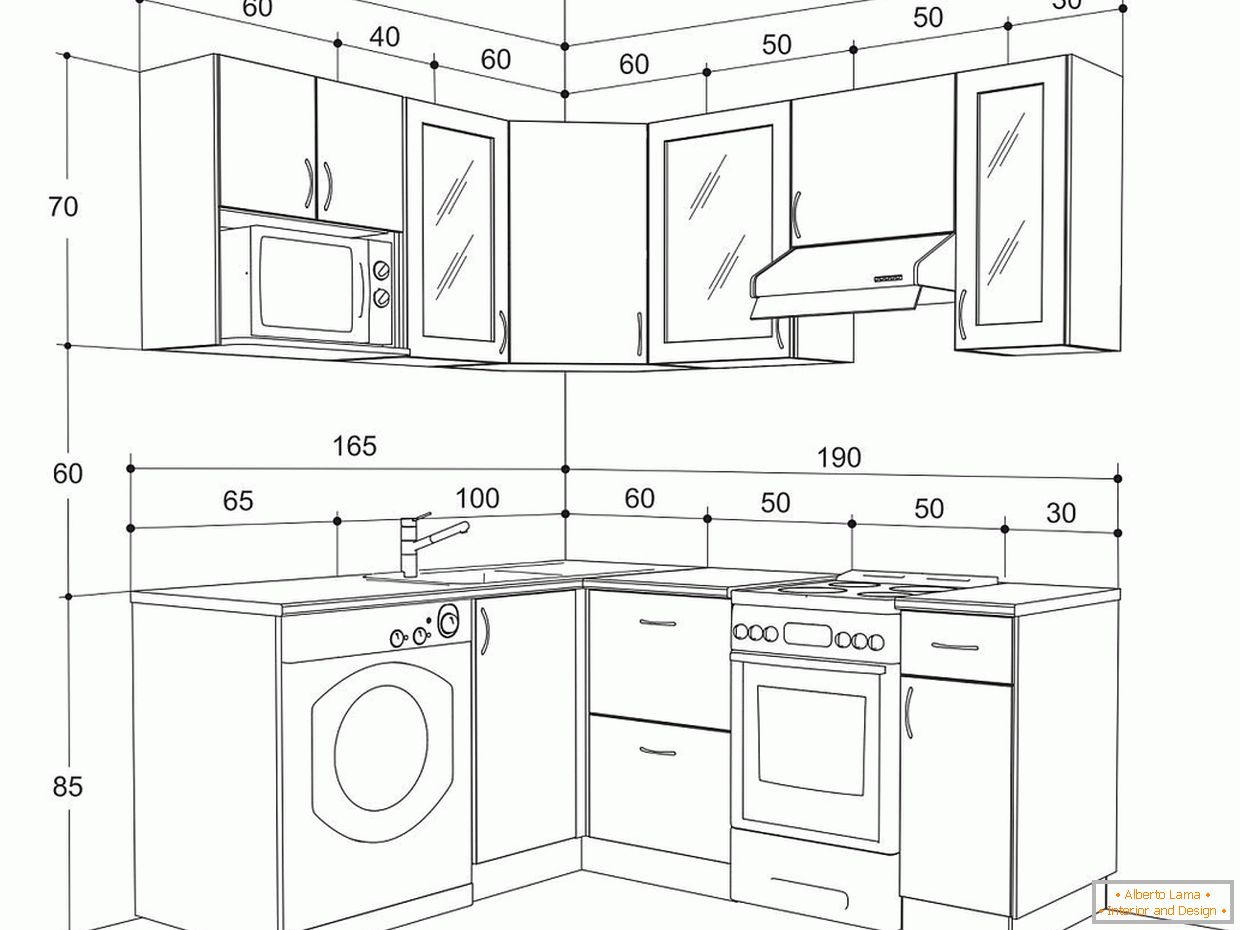
Conclusion
Kitchen - a special room, where the owners spend a third of the "home" time. This is the meeting place for the whole family at breakfasts, lunches, dinners and unscheduled tea parties. If visitors come, then in solemn cases they are led to the living room, but more comfortable gatherings at the dinner table in an informal atmosphere. How to explain this phenomenon of kitchen "magnetism"? Perhaps a person wakes up "the memory of ancestors", because before the hearth served as the conditional center of the dwelling. On it they prepared food, warmed themselves up on cold nights, gathered the whole family, and took time for leisurely conversations. In Russia, these rooms were called "cooks" or "trick-and-treat". The word "kitchen" for the Russian language is not native. He was adopted from the Germans in the Petrine era (from "küche" - room for cooking). Modern kitchen certainly is not much like the previous analogs, but the magic and inexplicable attraction remained the same.

